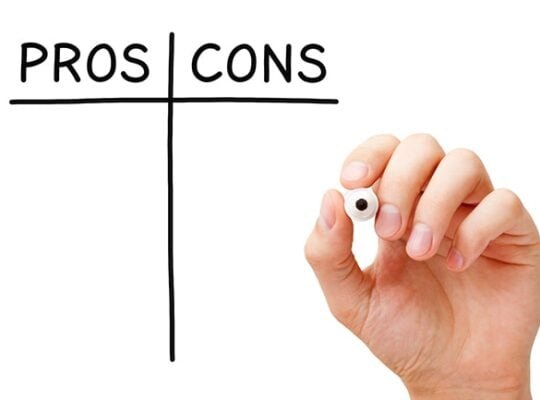My top 5 interview questions that seem like a trap. I’ve used them often in my interviews. I’ve heard them when I was sitting on the other side of the table. These are broad questions that require the interviewee to be prepared with their knowledge of themself and the company that they are interviewing with. When I review my past performances to these questions, I know I have fallen into the trap. Be prepared and practice so you are genuine in your answers to these interview questions.
1. Tell Me About Yourself?
A casual conversation question to kick off the interview – until you realize you’ve got 60 seconds (elevate pitch) to sum up your entire career without sounding like a robot or oversharing your life story. According to Forbes, many people mistake this for a chronological autobiography, rattling off high school accolades and “summer jobs” that have zero relevance to the role at hand. When I ask that question, many interviewees will start with a rehash of their resume. I can read! Please key on a concisely crafted pitch that highlights your top three career wins and ties them directly to what this new gig needs. Practice until it feels conversational, not canned—otherwise, you’ll come off as stiff or rehearsed.
Pause for a beat, then segue: “I’m a project manager who loves data-driven storytelling, which is why at Company X I built dashboards that cut reporting time in half.” Boom—relevant, memorable, and under two minutes.
2. What’s Your Biggest Weakness?
Nobody wants to admit they’re a total disaster—but answering “I’m a perfectionist” is overplayed and transparent. Journeyfront ran a study showing that 65% of candidates default to cliché weaknesses that raise red flags rather than demonstrate self-awareness. What’s the trick? Choose a genuine skill gap (e.g., public speaking), explain how you’re proactively improving it (taking a Toastmasters course), and frame it as a work-in-progress rather than a fatal flaw.
In other words, ditch the “I care too much” trope and go for something real—but not crippling—and show you’re already taking steps to level up.
3. Why Should We Hire You?
This feels like an awkward sales pitch: “Pick me! Pick me!” Yet 72% of candidates can’t articulate their unique value proposition, according to the Indeed Career Guide. You need a three-part answer: your relevant skills, a quick success story, and why you’re excited about this company’s mission. If you only talk about yourself, you’re missing the “why us” piece—and that’s a one-way ticket to “thanks, but no thanks.”
Start strong by naming your top skill, hit them with a brief but juicy achievement (e.g., “I boosted customer retention by 20% in six months”), and finish by tying it to their vision (“I’m passionate about creating communities, which is why your platform’s focus on user engagement excites me”). Throw in a dash of enthusiasm, and you’ll leave them picturing you as the star of their next big project.
4. Where Do You See Yourself in Five Years?
Interviewers want to know if your career path aligns with their growth opportunities. Linkedin advises focusing on skill development and contribution, not lofty titles: “In five years, I hope to have honed my leadership skills and taken on larger cross-functional projects here,” rather than “I’ll be your VP of Everything” . This shows ambition tempered by realism, keeps you open to lateral moves, and assures them you’re not just here for a stepping-stone.
Paint a picture of how you’d level up: maybe you’ll mentor new teammates, spearhead an innovative initiative, or even lead a small task force. By sharing concrete goals—like mastering a new tool or presenting at industry conferences—you prove you’re forward-thinking and genuinely invested in the company’s future (and yours).
5. Tell Me About a Time You Failed
This behavioral classic trips up 58% of candidates who either dodge the question or end on a negative note, per The Harvard Business Review . The STAR method (Situation, Task, Action, Result) is your friend here—pick a real failure, describe the corrective action you took, and highlight the positive outcome or lesson learned. That way, you demonstrate resilience and growth, rather than shame or finger-pointing.
Pick a failure that’s relatable and not catastrophic—think “missed deadline” versus “bankruptcy.” Frame it as a plot twist in your career story: “I once underestimated a project’s scope, which taught me the value of buffer time and clearer stakeholder check-ins.” Finish by showing how that lesson made you a stronger contributor.
Want to discuss further or need help – just contact me.






